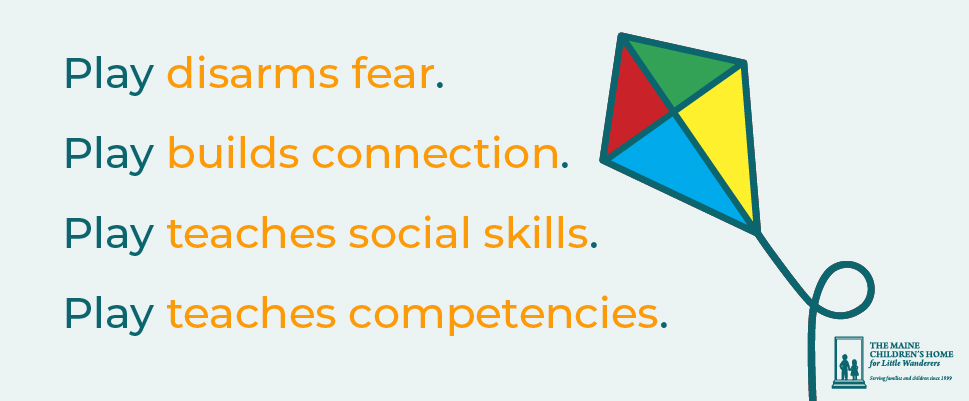The Importance of Play

A child’s first language is play.
As adults, we sometimes forget how to play and be playful with our children because we are so caught up in the adult stressors that occur. When our children are being disrespectful or defiant, it is really hard for us to respond playfully because disrespect and defiance are not the desired behaviors that we want for our children. Dr. Karyn Purvis has done research on how connecting with our children in playful ways, even when disciplining them, will help them to learn concepts faster than if we tried to teach them through only speech.
A Level one response from the Trust-Based Relational Intervention (TBRI) Levels of response is “Playful Engagement”. For example, if your child makes a demand, playfully say “Are you asking or telling?” with a light cadence in your tone. Play can disarm fear and help children accept “felt safety”. Dr. Purvis states that an escalation is not over until both parent and child are in agreement, and playful engagement has returned. Learning new concepts through play can help create new brain pathways for appropriate behaviors quicker than just talking to children about appropriate behaviors.
Parents, I know that this is a really stressful time in everyone’s life but take some time and play with your children and experience a little bit of the joy they have when playing.